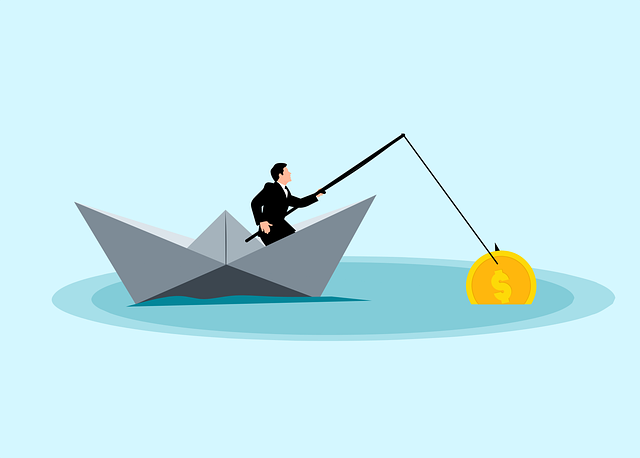Can Borrowers Get a Lån Til Bedrift in The Nordic Countries
When considering a startup in the Nordic countries obtaining a loan is a fundamental part of the process, as it is in most countries. A primary objective for borrowers is to compare lenders, with corporate banking being a resource for financing.
The financial entities are ranked based on customer satisfaction on a scale ranging from 1 to 100. Clients will select the provider they apply with based on other borrowers’ experiences with their lån til bedrift or loan for business. Severe methods for making an objective rating, but most people opt for testimonials.
The “Scandinavian Economic Zone” boasts only a few commercial banks when looking at global economic regions; even this small number is limited in corporate or business financing.
When considering this zone or the Nordic countries, these refer to Norway, Denmark, Sweden, Iceland, and Finland, along with those territories. These include the Aland Islands, the Faroe Islands, and Greenland.
How do business loans work in each of these regions for individuals hoping to establish entrepreneurship? Let us learn.
How Do Business Loans Work in Each of The Nordic Countries
Potential entrepreneurs in the Nordic countries, anxious for their startup to take off, need to apply for financing in order to see it through to fruition. The process for clients to compare commercial banks in the “Scandinavian Economic Zone” is based primarily on a ranking scale that goes from 1 to 100.
The primary consideration for clients is the testimony of other borrowers that have business with the financial institution.
Still, there are few choices available for commercial banks offering corporate or business lending for each of the regions comprising the Nordic Countries. Let us see how business loans work in each of these areas.
● Norway business loans
Norway’s economic landscape is described as unique. It is primarily focused on fish and oil. A small degree of corruption is noted, and exceptional social welfare. The country has a notorious reputation as among the most demanding for its tax system worldwide. So how is it to do business in Norway?
For those able to tolerate the hefty tax burdens and bear the knowledge that the country is not a part of the EU, you will find the country a fantastic hub for business.
Find profitable small business ideas for Norway at https://biztraction.biz/30-profitable-sall-business-ideas-in-norway/.
The country sees roughly 35,000 startups registered annually, an enormous number considering a population of only approximately “5 million people.”
In 2019, the Norwegian government initiated a corporate tax reduction of 22 percent from 23 percent for those who have concerns about the high tax rates. One of the most challenging aspects of establishing a startup or small to medium-sized business is obtaining a loan from a commercial bank in Norway.
Getting a loan for business in Norway is virtually impossible since many commercial banks refuse to grant loans for small companies, alternative financing is sparse, like independent credit companies, and crowdfunding still needs much work. Go here for what you should know before applying for a loan in Norway.
Many clients choose personal loans or borrow from close friends or family. There are stringent guidelines if you apply for a business loan in Norway. The commercial bank needs to ensure that the funds will be repaid for you to qualify. In order to service a debt, there must be a cash flow or readily available funds.
The bank will also expect collateral or an asset they can seize if the funds are not returned. You should speak with the lender about the sort of collateral they would consider appropriate for your business.
As is true with any country, when applying for a loan for a business, go prepared with an adequate business plan. This should include a well-established budget, descriptions of each person’s part in the company, what they do, the why, and the where of every detail.
● Denmark business loans
The suggestion is that Denmark is “the best country for business within Europe and has been for roughly seven years now.” That speaks to the thriving corporate environment the Scandinavian country has worked to establish.
It has been ranked #3 according to the “World Bank for the Ease of Doing Business Index.” That has ranked it ahead of all Nordic and Scandinavian countries. That does not mean it is easy to obtain credit or a business loan as a Danish company compared to other high-ranking countries that made the index.
While Denmark is more approachable for a business loan than their neighboring countries of Sweden or Norway, getting a business bank loan is often a bit of a hassle. Danish banks are ill-prepared to provide funds to startups or new companies due to the potential for high risks with minimal “rewards.”
For those who want a loan for business, it is vital to come prepared with a pristine business plan. If the loan process is unsuccessful, credit companies exist throughout Denmark with varying financing options for businesses.
These independent institutions generally focus on small to medium companies needing capital. Crowdfunding is also a viable platform in the country.
● Finland business loans
In recent years, the Finnish commercial banks have grown more cautious about lending to entrepreneurs, small/medium-sized companies, and startups.
These are precisely the enterprises with the greatest need. When banks continue to reject business loan applications, it becomes a genuine issue if there are no alternatives for the borrowers. Allowing new businesses their opportunities enhance the potential of the entire country.
The country does have an increasing number of finance companies providing startups and other new entrepreneurs small business loans. In fact, the alternative finance market in Finland is relatively significant when looking at the Nordic countries as a whole.
● Sweden business loans
Getting a standard bank loan for a small to medium-sized new business or a startup is exceptionally challenging. It helps if you are familiar with influential people in the banking industry or specific business contacts. Otherwise, the loan application is likely to be rejected.
A common problem with Swedish commercial banks is a lack of funding. Complaints among businesses are not having enough cash for investing or expanding, preventing growth in their industries and, thereby, in the country, keeping the economy down.
The suggestion in recent times is that independent credit companies are slowly trying to take away some of the demand by supplying small businesses with the financing they need by taking it away from the commercial lender.
The country is also looking at crowdfunding and alternative financing, concentrating on “new entrepreneurs, small companies, and project construction.”
By encouraging new small and medium businesses, entrepreneurship, and expansion and investing, financial institutions will stimulate the country’s economy and ultimately benefit from the endeavors.
Final Thought
When considering a new small or medium-sized business or entrepreneurship in the Nordic countries, it can be challenging to obtain a business loan, as we found out by looking at each of the countries individually.
While making it tough to get a commercial bank loan for business, some countries offer independent credit financing and alternative financing or crowdfunding. Hence, options are available to startups and new entrepreneurs.
A priority is to develop a strong business plan with as much detail as possible, including an established budget, especially when applying with a commercial bank. Primarily the lender wants assurance that you can repay the debt. That means having readily available funds, and cash flow.
Even then, you might be rejected; sometimes, it is all to who you know, or maybe it falls to who you do not know.
Still, if you are able to get a loan for business, companies appear to thrive in the Nordic countries, especially in Norway, making the battle worth the effort. Often the harder you work for something, the greater the rewards.


